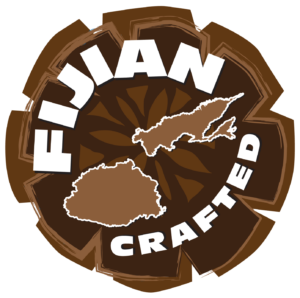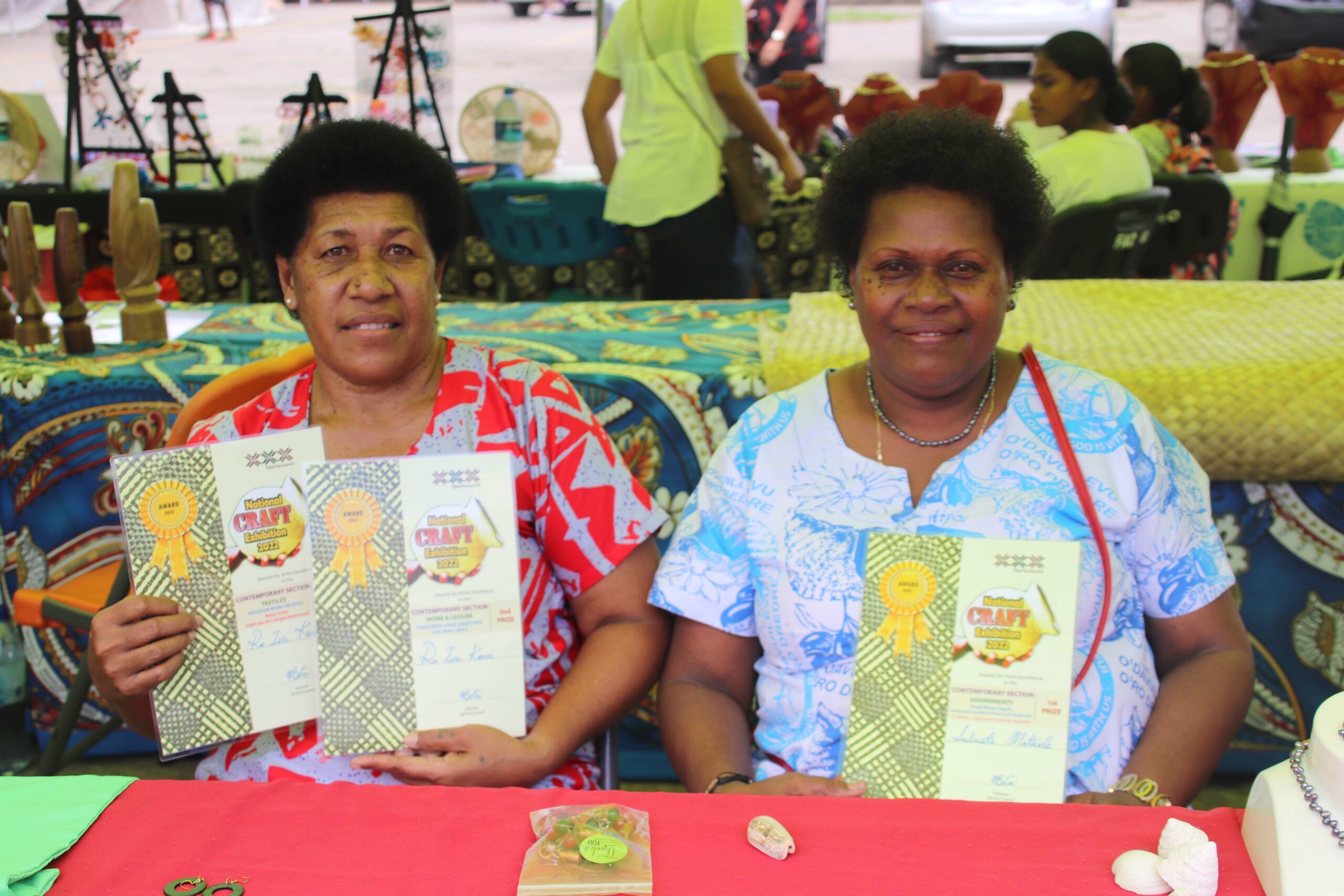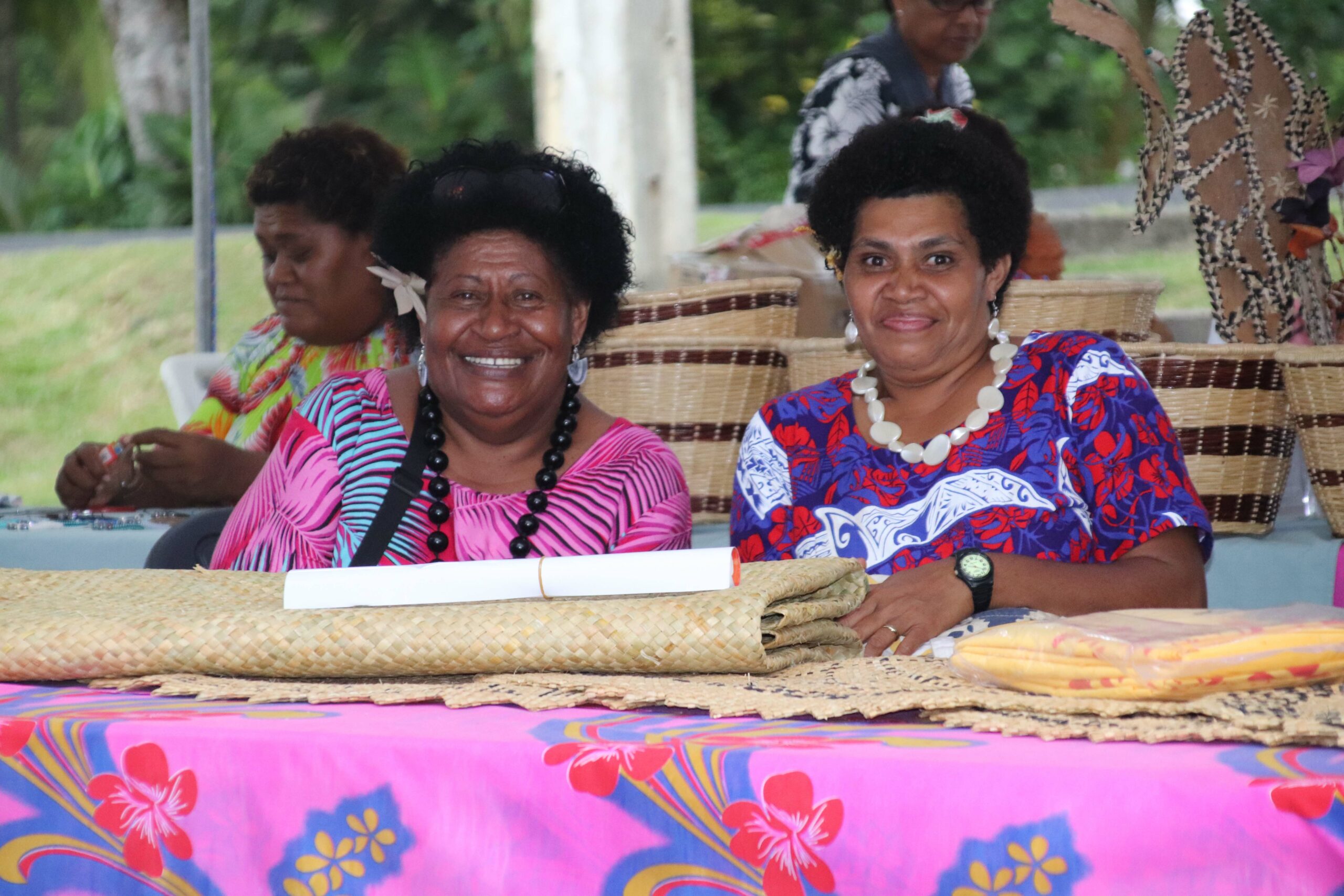FIJIAN CRAFTED
The Table below shows number of Fijian Crafted Licensed members:-
| Category | Total |
| Traditional Artists | 30 |
| Contemporary Artists | 34 |
| TOTAL ARTISTS (FIJIAN CRAFTED LICENSE) | 64 |
Fijian Crafted License Members
- Fijian Crafted License members
- Fijian Crafted License members
AUTHENTIC HANDMADE & HAND CRAFTED
COMPLIANCE CRITERIA: USED BY FIJI ARTS COUNCIL IN APPROVING A LICENSE TO APPLICANTS
“Fijian crafted” – All handicraft which use as its major components locally sourced materials that are weaved, crafted, printed or painted and stringed to depict authentic Fijian Crafted. Products categorized in two groups namely traditional and contemporary products.
Traditional Craft Certification Criteria
- The craft process must be based on traditional Fijian craft processes from any of the 14 provinces of Fiji including Rotuma that depicts their own heritage. The craft product must be in one of the following traditional craft practices:
- Tapa or masi
- Wood carving
- Mat Weaving
- Pottery
- Natural fiber weaving ( voivoi, kuta, wamere, bamboo, pine leaves, coconut leaves, magimagi, vau
- The craft product must be 100% produced in Fiji
- Raw materials for the craft product must be predominately locally sourced.
- The craft product must be made from 100% locally sourced materials
- The craft product must be 100% handcrafted with traditional tools. No machines can be used in the creation process.
Contemporary Craft Certification Criteria
- Craft processes can be based on either traditional or contemporary techniques but do not adhere strictly to traditional craft processes and products. Craft processes certified by the contemporary craft criteria include-
- Sewing
- Patchwork/ Tie and Dye/ Screen Printing
- Recycled material construction
- Jewelry making using local shells, seeds, strings, recycled materials
- Crochet
- Visual Art Work – Painting on Canvas/ Masi
- The production process for the final product must occur in Fiji
- Raw materials for the product must be predominately locally sources unless local alternatives of equal quality and supply are not available. All recycled materials are considered local regardless of their primary origin.
- Finishing and fixtures can be imported when local alternatives of equal quality are not available
Both traditional and contemporary craft will also be assessed on the following criteria:
- Quality of Craftsmanship: Quality refers to the standard of technical skill and attention to detail in the production of a product. Quality is assess based on the craft process but generally include:
- Suitable and good quality raw materials
- Proper processing of raw materials for attractiveness, longevity and durability
- Attention to detail in the production process
- Technical proficiency of the production skills
- Strong construction and durability of the product, particularly in relations to the purpose of the product
- The level of finishing of the product- finishing touches of the product is very important
- Creativity: Creativity refers to the innovative use of one’s own original designs, patterns, colors, etc. in any of the craft production processes. Creativity can include a product’s design, shape, form, construction, color, scale and proportions.
- Crafts that are not mass produced
The above criteria’s are to be in place so that any Licensed Crafts practitioner is vigilant enough to respect and recognize the significance of the authentic branding at all times.
| Traditional Skills | Contemporary Skills | Visual Artists |
| Weaving | Textiles ( Screen Printing/ Tie and Dye/ Patch Work/ Crochet) | Drawing |
| Masi Making | Adornments ( Hand bags/ Clutch purses/ Jewelries) | Painting |
| Pottering and Ceramics | Home and Leisure ( wall hangings/ Lampshades/ products from own creations/ photo frames | Sculpture |
| Wood Carving | Photography |




